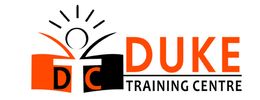- Duration / Course length: Upto 6 Hours
- Timings: Enquire
Course details
What is Tax?Tax is the means by which governments raise revenue to pay for public services. Government revenues from taxation are generally used to pay for things such public hospitals, schools and universities, defence and other important aspects of daily life.
There are many different types of taxes:
- A direct tax is collected by government from the person on whom it is imposed (, income tax, corporate tax).
- An indirect tax is collected for government by an intermediary ( a retail store) from the person that ultimately pays the tax (, VAT, Sales Tax).
- Value Added Tax (or VAT) is an indirect tax. Occasionally you might also see it referred to as a type of general consumption tax. In a country which has a VAT, it is imposed on most supplies of goods and services that are bought and sold.
- VAT is one of the most common types of consumption tax found around the world. Over 150 countries have implemented VAT (or its equivalent, Goods and Services Tax), including all 29 European Union (EU) members, Canada, New Zealand, Australia, Singapore and Malaysia.
- VAT is charged at each step of the 'supply chain'. Ultimate consumers generally bear the VAT cost while Businesses collect and account for the tax, in a way acting as a tax collector on behalf of the government.
- A business pays the government the tax that it collects from the customers while it may also receive a refund from the government on tax that it has paid to its suppliers. The net result is that tax receipts to government reflect the 'value add' throughout the supply chain. To explain how VAT works we have provided a simple, illustrative example below (based on a VAT rate of 5%)
A sales tax is also a consumption tax, just like VAT. For the general public there may be no observable difference between how the two types of taxes work, but there are some key differences. In many countries, sales taxes are only imposed on transactions involving goods. In addition, sales tax is only imposed on the final sale to the consumer. This contrasts with VAT which is imposed on goods and services and is charged throughout the supply chain, including on the final sale. VAT is also imposed on imports of goods and services so as to ensure that a level playing field is maintained for domestic providers of those same goods and services.
Many countries prefer a VAT over sales taxes for a range of reasons. Importantly, VAT is considered a more sophisticated approach to taxation as it makes businesses serve as tax collectors on behalf of the government and cuts down on misreporting and tax evasion.
Course Outline
Day1
Introduction to TAXES & VAT
Background & Economical Facts
VAT Principles
VAT & GCC
Difference between VAT & Sales Tax
VAT Rates
VAT Terminologies (as defined by Ministry of Finance)
Applicability of VAT
VAT developments
Who & how one can object on VAT
Accounting Entries for VAT
DAY 2
How VAT works
Who is required to register for VAT
Taxable Supplies
Zero Rated Supplies
Exempt Supplies
VAT Groups
VAT related responsibilities for Business
VAT Returns
Bad Debt Treatment
Fully VAT Taxable Business
Exempt Business
Mixed Business
Types of Supplies
Day 3
Compliance
Penalties for non-compliance
VAT Invoice
Conditions for VAT claim on Expenses
VAT on import
Claim & Documentation
Challenges
VAT Records
Industry Focus (Construction, Education, Real Estate etc)
Sector Focus
Updated on 11 September, 2018
About Duke Training Centre
Duke Training Centre, located in the heart of Abu Dhabi’s Tourist Club Area, is a premier training provider in the Gulf, approved by the Abu Dhabi Center for Technical Vocational Education & Training (ACTVET) and an Autodesk Authorized Training & Testing Centre. Since 2004, Duke has been a trusted partner for learners and businesses across the UAE and surrounding countries.Offering a comprehensive range of courses—from IT and technical training to business management and vocational skills—Duke Training Centre is dedicated to empowering learners with real-world knowledge and practical skills. Whether you're looking to upskill in Microsoft, Oracle Solaris, Cisco, Citrix, PMP, ITIL, or CEH, Duke ensures that you receive cutting-edge training from certified instructors using the latest authorized curriculums.
Why Choose Duke Training Centre?
- Approved by ACTVET
- Aughorized Exam & Training Centre From:
- Cambridge International College (UK)
- Authorized AAPC Exam Centre
- JEE Exam Centre
- IOU Authorized EXAM Centre
- Authorized IELTS Exam Centre (IDP)
- Authorized AMCA Centre
- Authorized NAATi Exam Centre
- Authorized AutoDesK Centre
- Experienced, Professional and Certified Trainers
- Comprehensive learning solutions for individuals and businesses
- Flexible learning formats: online, offline, and personalized one-to-one sessions
- Highly reputable training partner to some of the top global organizations
"Duke Training Centre exceeded my expectations! The instructors were highly knowledgeable and approachable, making complex IT topics easy to understand."
— Ali K., PMP Course Graduate
"I took an IELTS prep course at Duke and achieved the band score I needed. The personalized feedback and flexible schedules really made a difference."
— Sarah L., IELTS Student
"Their customer service is top-notch, and the training solutions are tailored to our company's needs. We’ve sent multiple employees to Duke for training, and the results speak for themselves."
— Fahad A., Corporate Client
Duke Training Centre is more than just a training facility. With a TWO Decade of experience, Duke has become the go-to partner for businesses and individuals alike, offering professional training that helps learners stay competitive in today’s fast-paced market.
Enroll today and take the next step in your professional development! Whether you're enhancing your IT skills or improving your management expertise, Duke Training Centre provides the knowledge and support to help you succeed. See all Duke Training Centre courses
Enquire about this course
You may add more courses here,
your list will be saved.



